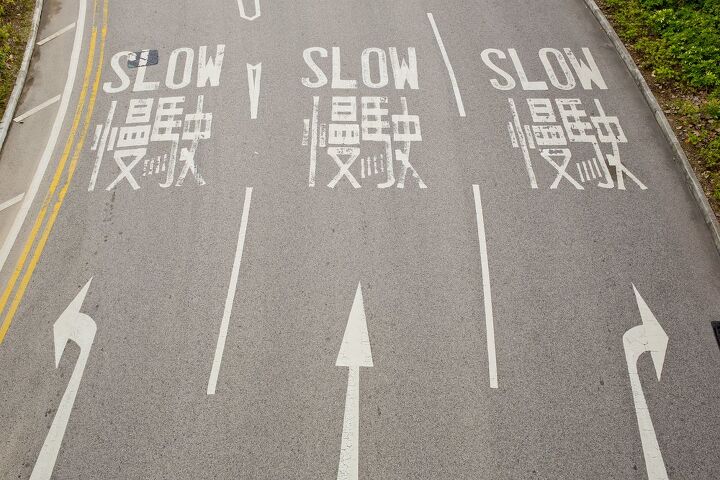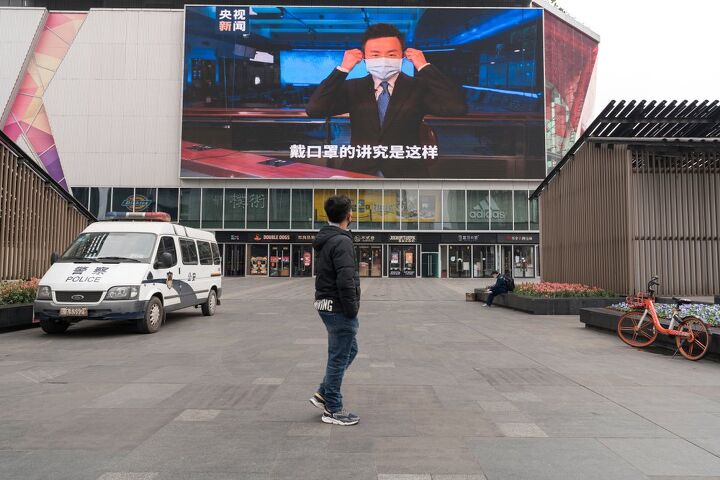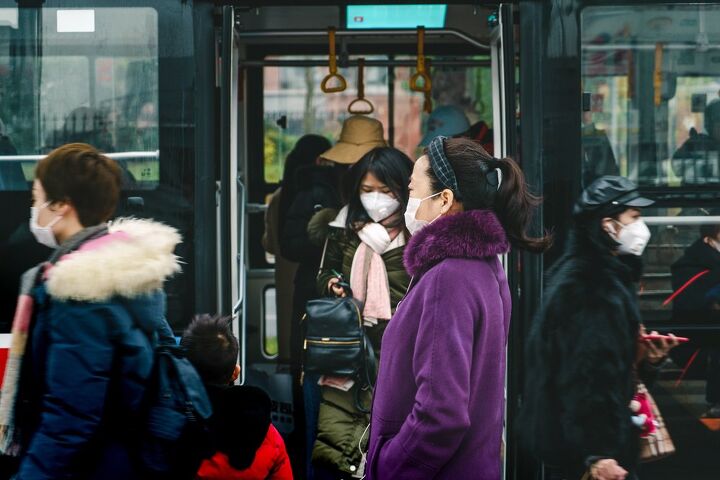#ChineseAutoMarket
Don't Bet on Seeing Chinese Brands in the U.S. Anytime Soon
Over the past decade, regular reports that Chinese automakers were readying a major push into the North American market became commonplace. We started seeing them move out of trade show basements to take up some of the most desirable real estate on the main floor. While some of the product clearly wasn’t yet up to snuff, one could imagine budget-focused products flooding the U.S. and Canada after a few years of polish. However, the last time that seemed like a likely scenario was 2018.
Chinese brands are still trying to break into the untapped North American market; some even have physical office space set up within the United States. However, Sino-American relations have soured dramatically over the past few years, and new financial hurdles have made wrangling a new market extremely difficult.
NIO Death Watch: Chinese EV Company About to Bite the Dust
With the way China organized its great leap forward into electrification, we knew it would bury hundreds of automotive startups in the process. By propping up countless businesses, China ensured it could boast more new EV manufacturers than any other nation on the planet. Yet most industry watchers presumed there would be a low survival rate once these fresh firms attempted to transition into legitimate automakers. Some analysts predicted only 10 percent would still be in operation by 2023, while others said 1 percent was probably more realistic.
While this trial by fire seemed poised to weed out lesser-known companies, we’ve seen major players struggling of late. One of them is NIO — a company broadly viewed as a Tesla rival, but which is probably most famous for building the EP9 electric hypercar that traveled the globe to smash EV records in 2017. NIO had a tough 2019, posting a $479-million loss during the second quarter and announced the elimination of 2,000 employees — that’s after it sold its Formula-E team, closed an office in California, abandoned at least one planned factory, and ditched one new model mid-development.
The company now openly acknowledges that it might not survive through 2020.
Report: Chinese EV Subsidies May Be Coming Back
It could be argued that a large portion of the Chinese economy has been propped up by government programs, with electric vehicles making one of the best examples. With a vested interest in battery technology, China did everything it could to encourage industry players to focus on EVs while subsidizing their purchase by consumers. The end result was a country with the highest number of alternative-energy vehicles in the world — and more automotive automotive startups than it knew what to do with.
While the plan was always to force accelerated competition by getting new manufacturing firms to duke it out for supremacy, EV sales were also supposed to remain sky high. Yet they didn’t. China’s auto market began running out of steam far earlier than everyone assumed. When the country nixed electric-vehicle subsidies over the summer, the segment went into a tailspin, with every successive month returning negative growth.
China would like to see things turn around, so it’s mulling the prospect of reintroducing incentives to get EVs into more driveways.
Coronavirus Delays Beijing Auto Show, Chinese Grand Prix, Formula E
Thanks to the ongoing coronavirus outbreak in China, the Beijing auto show has reportedly been postponed. While the event was supposed to take place at the end of April, making its yearly trade with the similarly biannual Shanghai trade show, organizers have decided it’s not worth the risk.
Over 70,000 people have reportedly contracted the virus thus far, with the death toll estimated to be somewhere around 1,700. The White House recently said it did not have “high confidence in the information coming out of China,” estimating higher figures. Travel and shipping bans further complicate the matter. Germany’s Automobilwoche said exhibitors wouldn’t be able to ship displays into the country anyway, referencing health notices sent to global logistics organization CIETC.
Coronavirus Infects Chinese Auto Market, Supply Chain Problems Persist
Not that there’s ever a good time for a global pandemic threat, but the coronavirus currently sweeping through Asia really could have scheduled itself more conveniently. China was already in the midst of an economic downturn when the virus reared its ugly head, with the country’s automotive sector having just moved backward for the second year in a row. The outbreak, centered in the Hubei province’s capital of Wuhan, is guaranteed to worsen the issue.
Responsible for about a tenth of China’s automotive manufacturing power, the region has basically gone dark since the outbreak picked up steam late last month. Over 50 million people are now presumed to be under house arrest due to the Chinese quarantine. Forbidden from going outside, they’re hardly likely to risk infection and government ire just to put for a few hours at their local factory. They also aren’t going to run out to their nearest dealership to support the ailing economy — but that’d be the first place to go after the sequestration ends.
If I were in their shoes, I certainly wouldn’t be taking the bus for a while.
Chinese Auto Market Still Sour, Dealers Discount Old Stock
Automotive retail sales in China rose slightly last month, representing the first uptick in volume over the last year, according to Bloomberg. But those gains were the result of a nationwide fire sale of backed-up inventory that dealers were tired of seeing clutter up their lots. Officially, the China Association of Automobile Manufacturers (CAAM) says the new vehicle market still kind of sucks.
For June, wholesale deliveries of new passenger vehicles fell 7.8 percent to 1.73 million units. That’s twelve straight months of negative growth.
Playing Both Sides: How Toyota Is Rolling With the Trade War Punches
While it’s difficult to muster sympathy for giant corporations, the trade war current raging between the United States and China has left many stuck in an industrial limbo. Automakers want a bigger slice of the global market, but putting your eggs in either country’s basket will result in repercussions from the other.
We’re not saying this to promote some kind of commiseration for multinational companies; rather, it’s simply to remind everyone of how the auto industry has to conduct its business. Frequently, carmakers must play both sides. Toyota, already one of the world’s largest automakers, knows this better than anyone, and new documents shed light on some of the cloak-and-dagger aspects of maintaining its high-volume position.






















Recent Comments